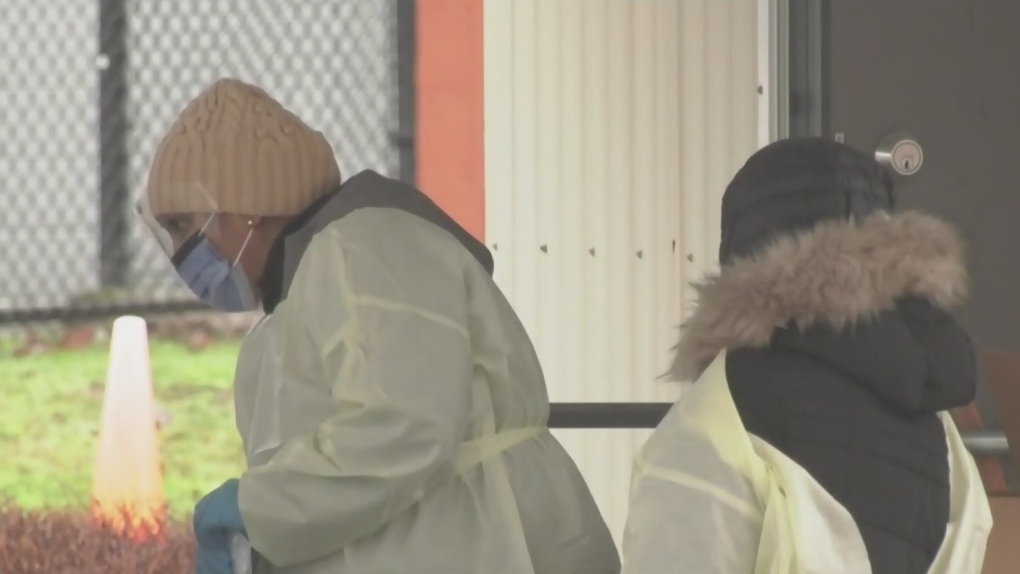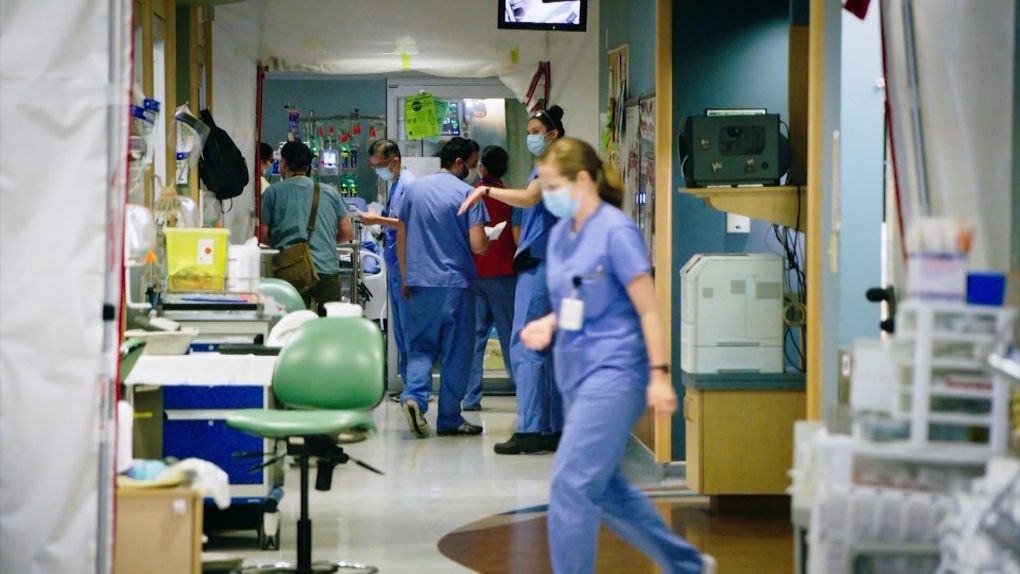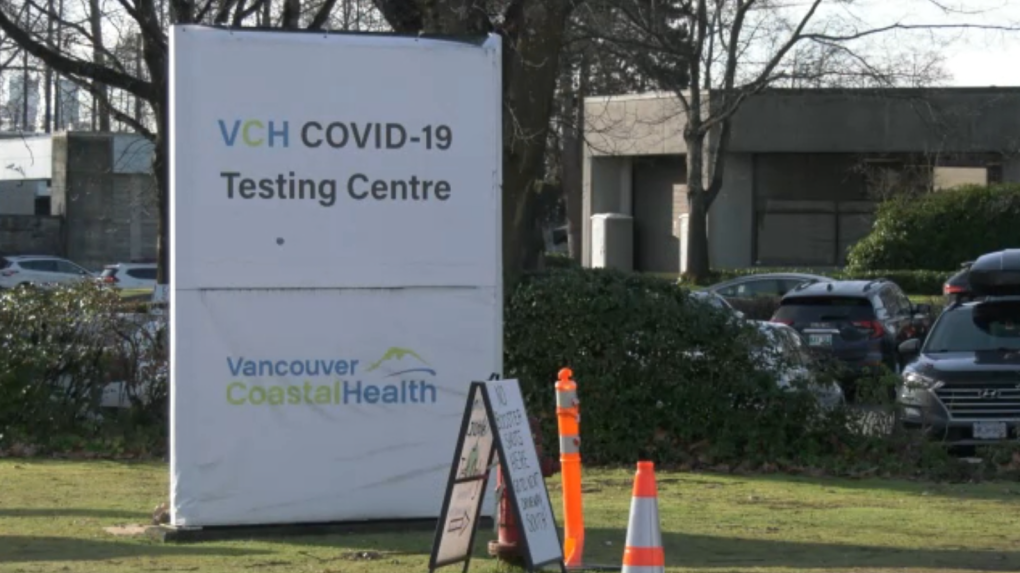
Anger, confusion as most British Columbians now don't qualify for COVID-19 testing
For the majority of the pandemic, the provincial health officer has advised British Columbians to get tested if they have COVID-19 symptoms. That message changed dramatically on Friday.
With COVID-19 now being treated more like other respiratory illnesses, most people don’t qualify for government-funded rapid antigen or PCR testing.
Rivka Ziskrout’s 12-year-old son, who has COVID-19 symptoms, received an at-home rapid test kit at the drive-thru testing site in North Vancouver on Wednesday, and was told to come back for another test 48 hours later. But by Friday, the criteria for who qualified for a test had changed, and he was turned away despite being symptomatic.
“He was provided a little handout that says who can get tested,” said Ziskrout.
Only the unvaccinated, the immunocompromised, and people who live or work in certain high-risk settings are eligible for PCR or rapid testing. Everyone else doesn’t qualify anymore, regardless of symptoms, and that includes most seniors and children.
“He was sent home. We don’t know. He still has symptoms,” said Ziskrout of her son.
“So now, as parents, we are left to speculate whether or not it is COVID, treat him as best we can and it raises a lot of concerns and a lot of anxiety.”
The rule change for testing eligibility came three days after Surrey opened its first dedicated rapid test kit distribution centre at Bear Creek Park. It has capacity to hand out 750 test kits per day, but now very few people qualify to book an appointment there.
“It’s been ripped away from us before it even started,” said Surrey Board of Trade president Anita Huberman. “The Bear Creek rapid test site just opened, and it was a way to keep each other safe. You know, when you have symptoms, you want to make sure what’s happening, whether or not you can go to work.”
While Dr. Bonnie Henry argues most symptomatic British Columbians don’t need COVID-19 tests because they should be staying home regardless and contact tracing has stopped, Huberman believes people have a right to know, and a right to access publicly funded testing.
“We want to know what’s happening with our body as an individual,” she said. “And if you’re an employer, you want to be able to indicate what type of action or interaction on the floor (is OK) if you’re a manufacturing facility (and) someone has COVID. Information is key to ensure productive, safe workplaces.”
Ziskrout agrees.
“We need that information and now we can’t have that at all,” she said.
Because she’s pregnant, she is isolating from her symptomatic, 12-year-old son.
“We don’t want to affect the baby, and now I don’t know, are we going overboard on that? Maybe nothing would have happened. Maybe it’s not COVID so it would have been fine,” she said. “It definitely would be nice to know.”
Must Watch
Top Videos
CTVNews.ca Top Stories

UPDATED | A plane is engulfed in flames after skidding off the runway in South Korea, killing at least 177
A passenger plane burst into flames Sunday after it skidded off a runway at a South Korean airport and slammed into a concrete fence when its front landing gear apparently failed to deploy. Most of the 181 people on board died in one of the country’s worst aviation disasters.
7 min ago
Canadian model Dayle Haddon dies from suspected carbon monoxide poisoning
Dayle Haddon, an actor, activist and trailblazing former 'Sports Illustrated' model who pushed back against age discrimination by reentering the industry as a widow, has died in a Pennsylvania home from what authorities believe was carbon monoxide poisoning.
Trump appears to side with Musk, tech allies in debate over foreign workers roiling his supporters
U.S. president-elect Donald Trump appears to be siding with Elon Musk and his other backers in the tech industry as a dispute over immigration visas has divided his supporters.
NEW | A by-the-numbers look back at Canadian finance in 2024
The big questions in Canadian finance heading into 2024 were whether the economy could avoid a recession and what would happen with interest rates.
3 min ago
Mississauga tow truck driver charged for impersonating a cop in northern Ont.
A southern Ontario resident has been charged for allegedly impersonating a peace officer during a towing incident in northwestern Ontario.
SIU investigating after Toronto cops discharge sock round, less-lethal firearm at man that resulted in serious injuries
The province’s police watchdog is investigating after Toronto officers discharged sock round and less-lethal firearm at a man who had allegedly stabbed another person in the city’s Rockcliffe-Smythe area on Saturday morning.
NEW | Tornadoes in Texas and Mississippi kill 2 and injure 6 as severe weather system moves east
At least two people were killed and six more injured as several tornadoes touched down in Texas and Mississippi on Saturday, damaging homes and flipping vehicles as the storm system moved east across Alabama early Sunday.
18 min ago
Vancouver man defrauded Chinese developers of US$500K, court rules
A Vancouver man has been ordered to pay more than US$500,000 after a B.C. Supreme Court judge found he had defrauded the would-be developers of a real estate project in China of that amount.
15 hurt when passenger train strikes fire truck that drove into crossing after freight train passed
Three firefighters and a dozen passengers were injured in Florida on Saturday when a fire truck drove around rail crossing arms and into the path of a high-speed passenger train after waiting for another train to pass, according to a person briefed on what happened.




































































